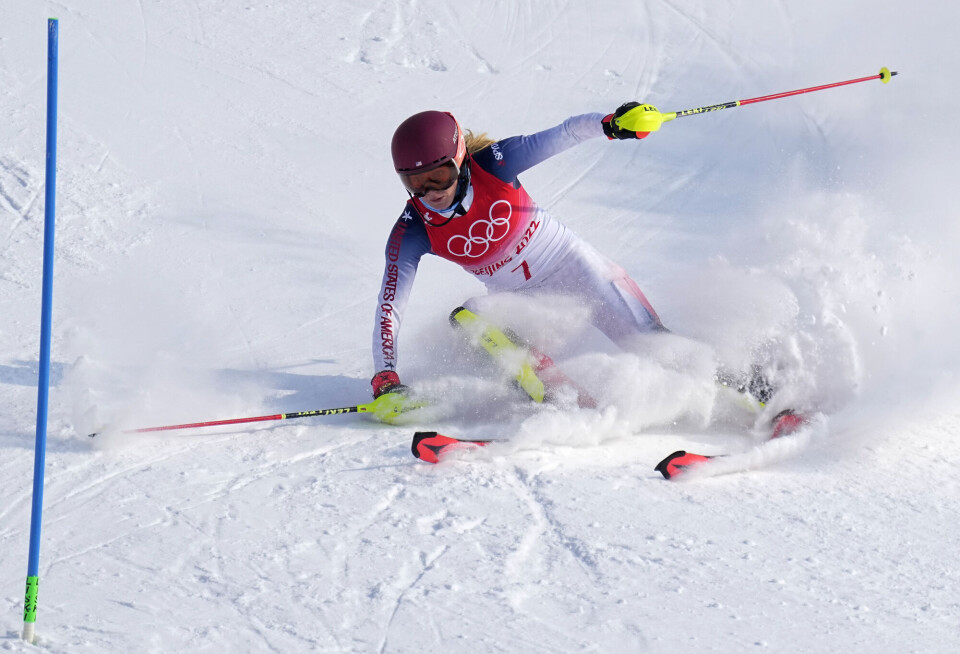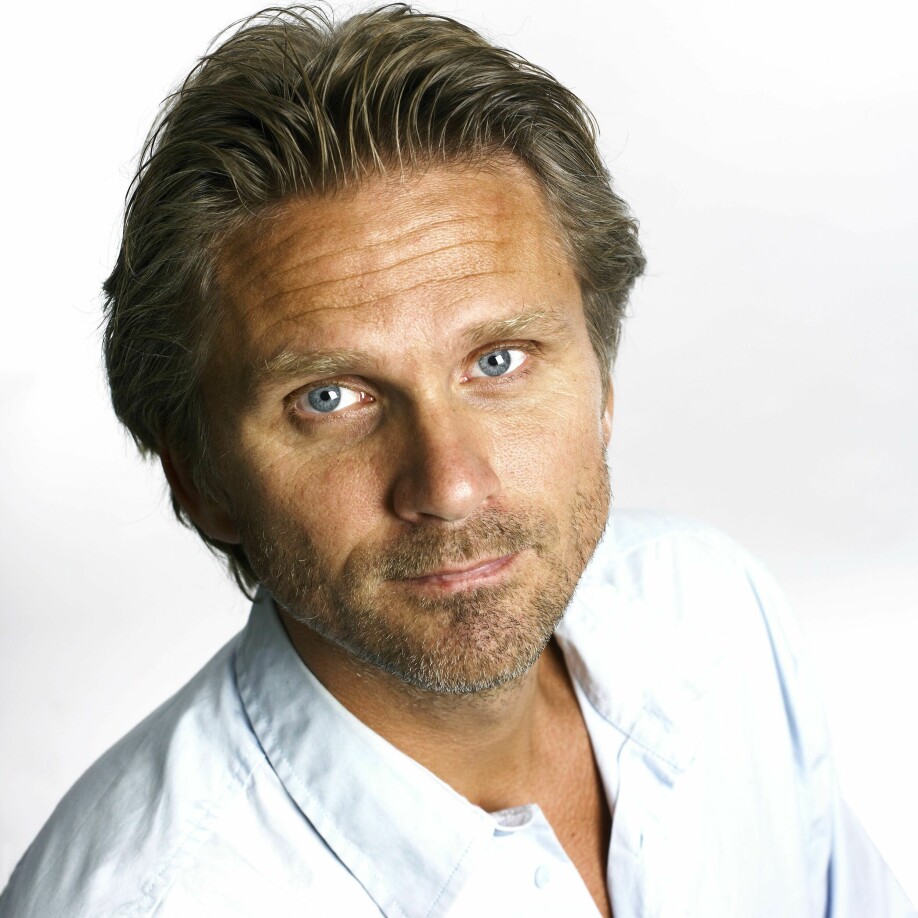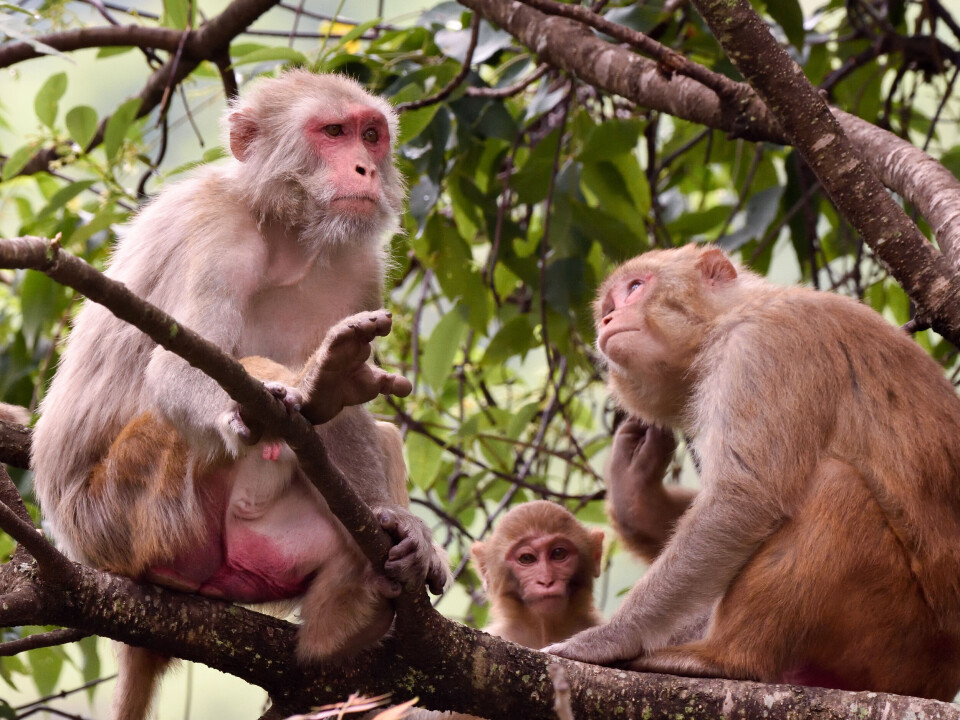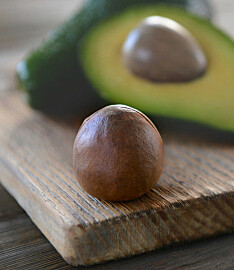
Why am I at my best when it doesn't matter?
When a lot is at stake, things tend to go awry. In terms of evolution, it doesn't make sense. Why aren't we at our very best when we need it most?
It's perhaps mostly your own fault when you decide to start learning something completely new in middle age.
Guitar lessons, for example. It looks so easy.
But when you put the project into practice, it turns out that even the simplest little tune is actually quite difficult.
As if that's not enough, you can also fall victim to another strange phenomenon.
As the guitar lessons progress, you show some improvement. Slowly but surely, the melodies sound better. Your fingers find the strings. The rhythm works.
But — and here comes the catch — only when no one is listening!
As soon as the guitar teacher appears, your fingers suddenly no longer find the notes. In the middle of a familiar tune, they have no idea where they are going. And there, at the end of your arms, you sit with burning cheeks worrying that the teacher must think you never practice.
Evolutionary paradox
The comfort is that you are not alone in your shame.
Because this is true for more than middle-aged guitar novices. Many of us find that we are at our best when it doesn't matter, in everything from sports to public speaking.
But how is that possible?
In terms of evolution, it doesn't make sense. You would think that natural selection would favour the hunter who shoots his most accurate arrows when the prize deer stands there or the sabre-toothed tiger attacks.
Not the hunter who trips over his own feet and breaks the bow with his butt when it matters most.
So why aren't we at our best when the stakes are high?

Failed when it mattered
This question quickly leads us to sports psychology.
The people who really have something to fear from this phenomenon are after all athletes, musicians and others who make a living from performing at their best when it matters.
“This is a problem that athletes struggle with and that they work on all the time,” says Elsa Kristiansen, a professor at the University of South-Eastern Norway.
She and her colleague Hedda Berntsen have written a book on sports psychology. It precisely addresses how athletes can avoid breaking under pressure and be the best when it matters.
“Take the alpine skier Mikaela Shiffrin, for example,” Kristiansen said. “She missed gates and washed out during three Olympic competitions in a row. This had never happened to her before, not during a World Cup race or the Olympics. She herself says she doesn't know what happened.”
Nor does Kristiansen have a simple answer to why such things happen.
She says it’s partly an interaction between motivation, how much you have trained and how stressed you are. But also about coincidences, such as the ski binding loosening or the wax job not being top-notch, or that you vomit from nerves, or that someone says something that makes you lose focus and get angry.
“Sport is very complex,” says Kristiansen.
There same holds true for music.

Tacit knowledge
Someone who knows a lot about musical performances under pressure is Nils Harald Sødal.
Sødal is a former soloist at the Norwegian Opera & Ballet, professor II in performance psychology at the University of Agder and head of research at the Oslo Academy of the Arts.
“The vast majority of people experience that they are often at their worst when it really matters, because physical and psychological roadblocks crop up when we come under pressure,” he wrote to sciencenorway.no.
“These roadblocks often result from thinking too much at the moment of performance itself,” he wrote.
When we practice a lot, for example how to play an instrument, the skills become automatic, Sødal said.
“They are baked into reaction patterns and nerve pathways. The more we practice, the more is stored on our hard drive, in the body's muscle memory. In this way, our skills are transformed into what is called tacit knowledge in academia,” he wrote.
Tacit knowledge lies underneath the threshold for conscious thinking, Sødal wrote. He cites a skilled driver as an example.
What characterizes good drivers is not that they think consciously about everything that happens during the drive, but that the right reactions reside in their hands and feet. In that way, the driver allows the activity to control itself.
But then comes that time when it really matters.
Stumbling in the need for control
“When we come under pressure, the opposite can happen. The need to take control of the situation becomes so strong that we stop trusting the automated movements and instead try to control the activity from our head,” Sødal wrote.
“You start doing unnatural things, and then you can quickly find that you are getting in your own way.”
Paradoxically, then, the intense desire to control the outcome of what we do can in itself ensure that things go awry.
“Archers often experience what they call target panic. They focus so much on the result that they can freeze completely,” he wrote.
But how on earth could this have come about?

Monkeys on trial
There’s no really good answer to this question.
But a 2021 study hints that it may have happened astonishingly early. In fact, before human beings as a species even existed.
Rhesus monkeys are a group of great apes that live in Asia. They are much more different from humans than great apes such as chimpanzees and gorillas. We have to go back a full 25 million years to find the common ancestor for humans and rhesus monkeys.
Adam L. Smoulder of Carnegie Mellon University and his colleagues used three rhesus monkeys in their experiment.
The researchers trained the monkeys to do a difficult task on a computer screen. The animals used their hand to control a cursor on the screen. The task was to quickly point to and hold a target that appeared.
Before each task started, the monkeys were shown what the prize was if they succeeded. The reward could be small, medium or large. And on a rare occasion, a huge prize appeared, much, much bigger than the others.
The results showed a familiar pattern.
Monkeys are also best when it doesn't matter
In general, the higher the reward, the better the monkeys performed. They sharpened their skills when they knew that there was a lot to be gained from completing the task.
But when the giant prize appeared, performance dropped. All three monkeys did worse than with a large prize. And two of them performed absolutely worst when there was a huge prize to be won.
The problem seemed to be that the monkeys prioritized precision over speed. They were too cautious in their movements and thus moved the marker too short to hit the target, Smoulder and his colleagues wrote.
There are several hypotheses about why we humans crack under pressure. For example, that we become overexcited or distracted.
But the experiment with the monkeys seems to support the same idea that Sødal talks about:
When a lot is at stake, we no longer trust the tacit knowledge in our body, but try to consciously control the process. But instead of a better outcome, this often results in slower movements, poorer timing and less precise coordination.
So it seems that at least some of the mechanisms behind this strange phenomenon developed in our ancestors many millions of years ago and have been with us until today.
But why?

Unfortunate side effect of intelligence?
Nobody knows for sure. But it is always possible to speculate.
One possibility is that the reaction is not in itself adaptive, but is just associated with another useful characteristic.
Perhaps the tendency to crack under pressure is simply an unfortunate side effect of intelligence, said Torfinn Ørmen, a zoologist and senior lecturer at Oslo Metropolitan University (OsloMet).
“Both we and monkeys are so intelligent that we understand the importance of being able to complete this particular task, so that we think too much about how we are going to make it happen and thus block the routines we have learned,” he wrote to sciencenorway.no.
“We get worried about the outcome if we don't get it done,” Ørmen wrote.

Or can the reaction also have an advantage?
“It may be connected with risk assessment,” Ørmen wrote.
“Attempting to single-handedly trap a very large prey animal can be so dangerous that the best thing is not to actually try, but rather to find something smaller and safer,” he wrote. “The hunter who has the greatest chance of passing on his genes to the next generation is the one who comes home with small or medium-sized game every day, not the one who, at the risk of his own life, tries to hunt down the really big ones. So evolution has not selected for this.”
“But here we have no clear answer, and several factors are certainly involved,” he concluded.
Mental techniques
Regardless of the evolutionary antics behind it, one thing is pretty obvious: The phenomenon is here to stay.
Alpine skiers will mysteriously ski out of a turn they should have made. And several guitar novices will be sweating over their sausage fingers, under the teacher's determined gaze.
But even though the irritating tendency to crack under pressure is probably rooted deep in both our history and biology, it fortunately doesn’t mean it's impossible to combat.
In their book, Elsa Kristiansen and Hedda Berntsen write about how athletes and their supporters work with motivation, management, training and mental techniques to actually be the best when it matters.
This involves being mentally prepared for what you will encounter during a competition, among other things. What is it like, for example, to play an away match where you have the crowd against you?
In addition, how you relate to the goal plays a big role. It’s better to concentrate on the tasks you have in front of you than on winning, says Kristiansen.
“If you think you have to win, you forget the simple things and lose focus,” she said.
Trust your body!
Sødal would probably agree with that assessment.
“We try to use our thoughts to control the end result. But the end result can never be controlled, because it lies in the future,” he wrote.
“Archers, like other athletes, must instead learn to focus on the moment, only on what they do here and now, because it is that, and only that, that determines the shot,” he said.
“This is a basic principle in all forms of performance psychology, namely developing the ability to be present in the moment, getting more of the present into your head and less of the past and future.”
In other words: Stop thinking!
This is obviously easier said than done. But there are techniques to fill your head with something else, such as attention training or mindfulness, which are tools promoted by Olympiatoppen, an organization that is part of the Norwegian Olympic and Paralympic Committee that trains top athletes.
“If you learn to trust your tacit knowledge and surrender to it, then much of the work has been done,” Sødal wrote.
“The only thing the body asks for is that the head let go and trust the body,” he wrote.
Translated by Nancy Bazilchuk
———
Read the Norwegian version of this article at forskning.no



































